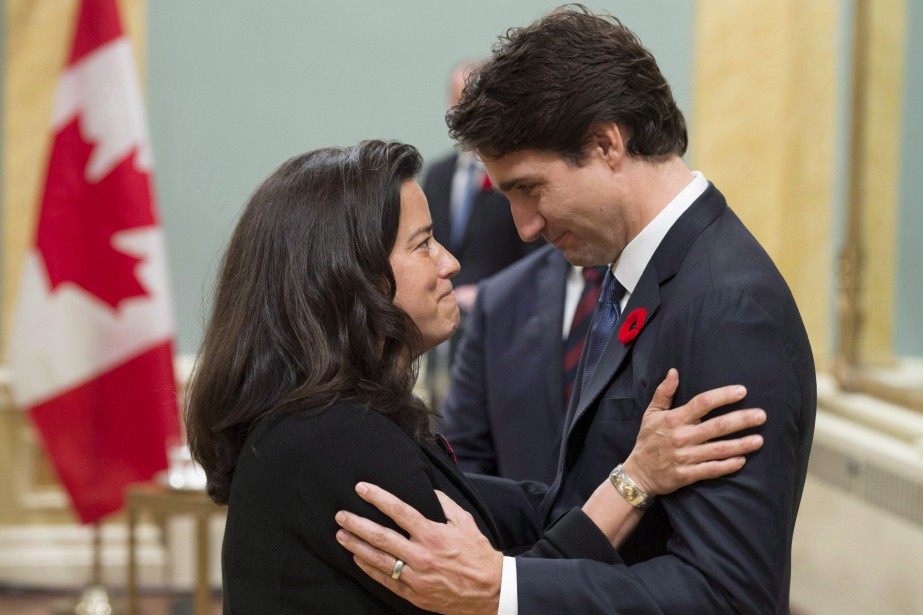Ministerial resignations are very rare so, when they happen, it’s a big deal. Veterans affairs minister Jody Wilson-Raybould resigned from cabinet just days after The Globe reported that the Prime Minister’s Office put pressure on her, when she was minister of justice and attorney-general, to help SNC-Lavalin avoid criminal prosecution.
For the Liberal government, this narrative is decidedly against brand. The Liberal Party campaigned on a message of open and accountable government, a feminist approach to policy and governance, a robust reconciliation agenda, and justice and fairness for everyone. Against this backdrop, the allegation that PMO staff pressed Ms. Wilson-Raybould to protect a Montreal-based corporation with known ties to the Liberals does not compute. The former minister was one of the Liberals’ brightest star candidates in 2015, and now First Nations leaders are shaming the Liberals for their “racist and sexist” treatment of her. She’s lawyered up. This is a disaster.
Given the seriousness of the accusations, and the fact that Ms. Wilson-Raybould has not poured ice water on them, her resignation is no surprise. To the contrary, it wasn’t clear how she could have maintained a presence in cabinet going forward given the palpable distance between her and the PMO. The SNC-Lavalin story has the effect of giving a retrospective context to the frosty atmosphere at the cabinet shuffle in January, and perhaps adds a new dimension to Ms. Wilson-Raybould’s press release the same day, in which she enunciates the independence of the attorney-general and the importance of speaking truth to power.
For the public (and even the most steadfast of political junkies) to know what’s happening in the PMO and in conversations involving ministers is always difficult. This is due in large part to constitutional conventions such as cabinet confidence that protect the secrecy of these exchanges. Despite the upbeat campaign material, and the publication of Open and Accountable Government in 2015, Westminster parliamentary systems are generally not known for being open or accountable. In any case, government officials have told us that Ms. Wilson-Raybould, in her capacity as justice minister, participated in internal conversations about the future of SNC-Lavalin. The company has been lobbying hard for a deferred prosecution arrangement that would circumvent a criminal trial. A conviction would ban SNC-Lavalin from bidding on government contracts for a decade. The attorney-general has the option to issue a directive to the director of public prosecutions to pursue a deferred prosecution arrangement.
A lot turns on the word “pressure” as it has been applied to the communications between the PMO and Ms. Wilson-Raybould. Conversations are above board, but pressure as it relates to her then role as attorney-general would not be. The “hats” of justice minister and attorney-general are separate and distinct, even though they are worn by the same person, and the attorney-general’s role is not to be subject to political “pressure.”
Ethics Commissioner Mario Dion has indicated that his office will investigate the matter at the request of the NDP, who allege that the circumstances could offend sections of the Conflict of Interest Act related to improper use of inside information, preferential treatment and conflict of interest. Of course, the Ethics Commissioner’s reports have political rather than legal significance and would serve the purpose of helping the opposition parties keep the story alive as we head into the election campaign.
Ms. Wilson-Raybould has retained former Supreme Court judge Thomas Cromwell to advise her on exactly how much she can say about what happened. Aside from any potential legal fallout, this story is sure to dominate the election campaign. In the political domain, it is up to the voters to decide whether any wrongdoing has occurred. This is where communications strategies become of critical importance.
The Conservatives and the NDP will try to develop a narrative that makes this stick to the Liberals. We can anticipate attack ads that situate the Liberal government as an entitled, elitist lot with close connections to the heaviest hitters in the business community. The goal will be to cast doubt on their integrity and the pledge to grow the middle class. Opponents, as well as other observers, will draw a connection between the SNC-Lavalin situation and “scandals” past. Some commentators have alleged political interference in both the SNC-Lavalin and Mark Norman cases, and have called the government out for hypocrisy on the Huawei case. Further, the issue has exposed fault lines in the Liberal fold, as some caucus members have spoken out to defend Ms. Wilson-Raybould.
Now that she is outside of cabinet, Ms. Wilson-Raybould is freer to speak her mind. This story might have more legs. Prime Minister Justin Trudeau has defended his government’s actions on the SNC-Lavalin file, and has said he is “surprised and disappointed” by Ms. Wilson-Raybould’s resignation, but earlier in the week, Mr. Trudeau confirmed that he had “full confidence” in her. Time will tell whether Canadians have confidence in him.


























